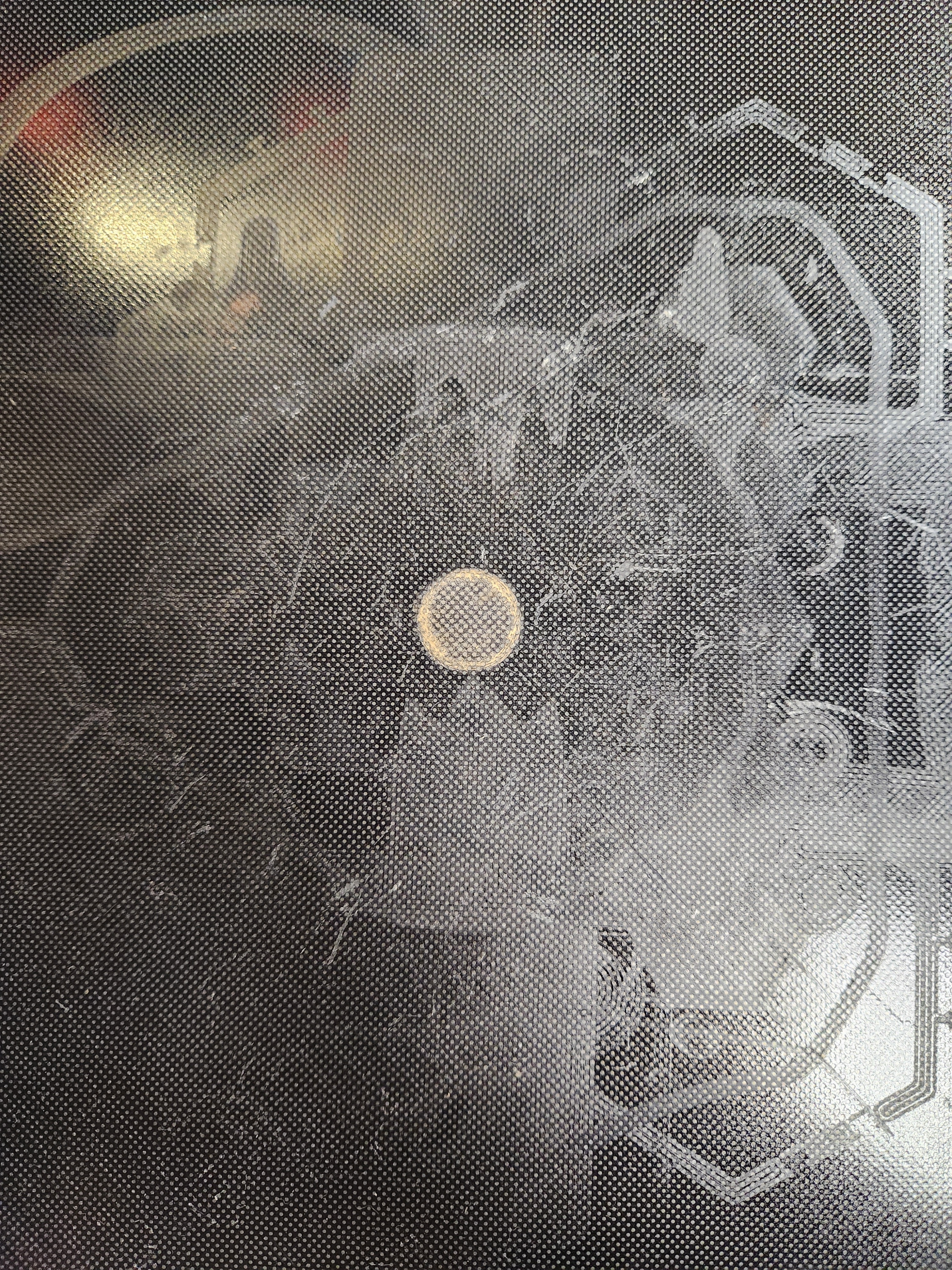
Rip
Thankfully, It’s okay. Ish.
My prints want to unstick a bit there, but overall it’s still working! The poor thing.
I don’t have this problem. I have a precision piezo Orion probe. My probe is my nozzle.
How do you handle residual filament on the nozzle from previous prints? Or if you heat it up to get to nozzle itself to touch the bed, do you get dabs of plastic distributed around your bed?
I preheat to 170°c. That allows the filament to be soft enough to be cleaned (with tweezers or a brush, it peels off in one piece most of the time) without oozing. Then I do a 10mm retract before probing.
That’s smart!
My probe hits my z endstop, so similar idea. I preheat my probe and manually wipe it before I home. Any ooze doesn’t really make a difference in first layer. At some point I’ll print a purge bucket and nozzle brush…
My endstop is just a metal rod, but since it’s cold filament doesn’t stick to it. If I were probing my bed I would probably want a hot nozzle and cold bed.
Cold bed can be a problem sometimes due to the bed warping with temperature. I myself always probe with the bed at printing temperature for this reason
Did that this morning. Except for I didn’t hit save and restart after setting new offset in klipper. But I just got a small scratch. I got lucky it wasn’t too bad. Lol
Removed by mod
Thanks for the detail!
Fortunately, in this case I was using a brand new, low-quality nozzle I don’t really care about.
After this, I did indeed notice that I hadn’t tightened the nozzle fully tight and I had some mild “drizzle” escaping down the side.
Since then, I’ve
- removed the nozzle
- cleaned the gunk out
- put the nozzle back in
- leveled the bed
- rechecked my z-offset
and… It’s printing fine again.
Even the nozzle was alright… entirely due to dumb luck. 🤦
Removed by mod
I have a BL Touch. I set my start GCode to not probe a grid for every print to save time. But if I do remove the nozzle or the glass bed, I have to run the grid again and store settings, otherwise I’ll have issues on the first layer.
This can still happen with a touch probe as the probe-to-nozzle distance can change so the printer thinks it’s at the right height but that’s only based on the previous nozzle length.
One thing I made sure of with my printer was that all my nozzles are the same length so that it’s one less thing I have to worry about with my printer
Switched over to Revo nozzles on all my printers. Didn’t have to adjust my z-offset since then, neither did I have any issues with print quality.
They are pricy but I prefer a stress-free solution over a cheaper one.
How does revo nozzle prevent from hitting into print bed?
They’ll all the same length when properly installed
Wow $50 each is pricey, though the easy swap and integrated heat break are neat features.
Edit: lol
Please note:
- You may need to adjust your Z offset when changing nozzles.
Ouch
Looks like my own Anycubic’s base ❤







